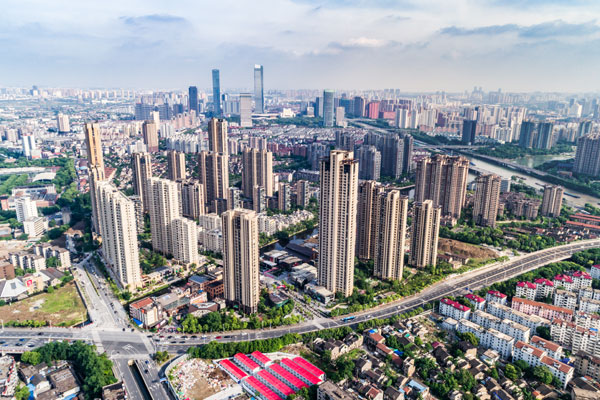Turmoil grips the Chinese property market

[Chinese apartment buildings. Photo Credit to Freepik]
The Chinese property market is in crisis as property developers teeter on the brink of default.
While the Chinese real estate crisis started due to various factors, the earliest spark to this crisis traces back to late 2021 when Chinese property developer Evergrande, China's second-largest property developer, defaulted on $300 billion of debt, with its collapse sparking contagion across the industry.
Since the onset of the COVID-19 crisis characterized by prolonged lockdowns, Chinese regulators introduced the “three red lines” policy, intended to ease the real estate bubble by setting restrictions on funds for borrowing.
In the case of Evergrande, as the company failed to meet the measures of the policy, they were prevented from receiving additional bank loans, resulting in a lack of cash to pay off the interest on its debts and consequently defaulting.
In the most recent month, Evergrande filed for Chapter 15 bankruptcy protection in the U.S. court, increasing the uncertainty over China’s property crisis and its effect on the economy.
The Hang Seng Index, a stock-market index in Hong Kong, has already gone into a bear market, indicating a prolonged drop in investment prices of large Chinese company stocks.
With major Chinese property developers similar to Evergrande at risk of default, worries of a global recession have been looming, as some see parallels to the 2008 global financial crisis ignited by Lehman Brothers' bankruptcy.
Several other Chinese property developers are in a similar plight to Evergrande; Country Garden, another major homebuilder in China, is at serious risk of default after missing two coupon payments of a combined $22.5 million.
Currently, Country Garden is proposing to extend the payment of $535 million onshore bond, due on September 2, by three years with a vote of bondholders, while still having to repay two coupon payments within the 30-day grace period.
Due to the constraints of the “three red lines” policy on property developers' funds and its impact on reducing new construction and home sales, the Chinese economy may encounter adversities, as the property sector constitutes about 30% of economic activities.
With the youth unemployment rate already rising in China, the crisis in the property sector could leave numerous jobs and households vulnerable to the economic instability that would contribute to social unrest throughout the nation.
In a worrying sign, China has halted the publication of monthly youth unemployment data for July, with the National Bureau of Statistics of China claiming that “it needs further research” on the age range and the surveys used to collect the data.
In this economic downturn, Chinese leader Xi Jinping called for patience, stating, “We must maintain historic patience and insist on making steady, step-by-step progress,” while criticizing the corruption of Western countries and their use of capital.
On the contrary, the politburo, the policy-making committee of the Chinese Communist party, announced loan relief for developers while removing the phrase ‘house is for living, not for speculation purposes’ from the meeting, revealing relaxations on property regulations.
However, estimating the potential effectiveness of the politburo's actions in revitalizing the property sector is challenging, given the perceived limited financial assistance for developers.
Furthermore, uncertainty prevails regarding whether China's property sector will stabilize, given the possibility of prolonged fluctuations in real estate conditions.

- Kijoo Park / Grade 12 Session 1
- Branham High School

![THE HERALD STUDENT REPORTERS [US]](/assets/images/logo_student_us.png)
![THE HERALD STUDENT REPORTERS [Canada]](/assets/images/logo_student_ca.png)
